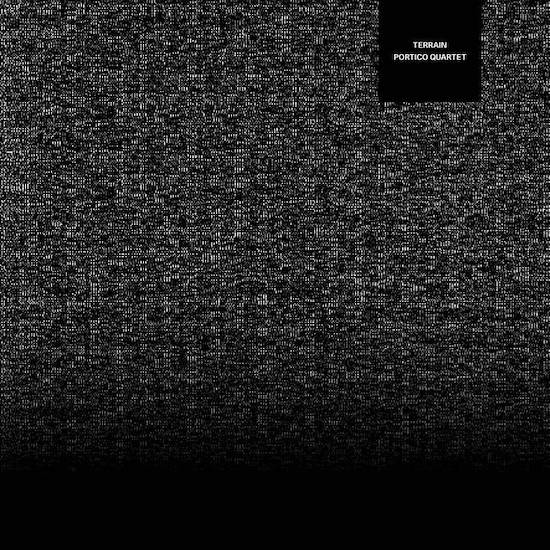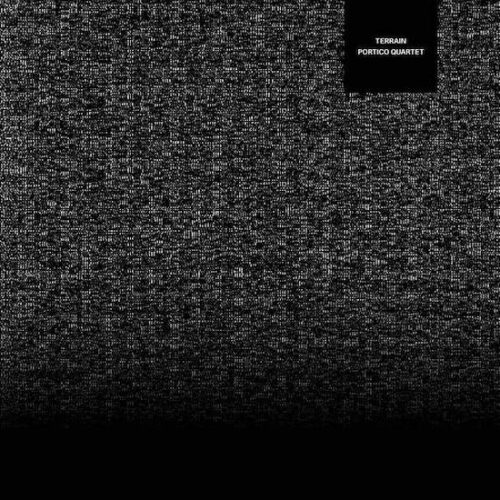Terrain is a slightly odd choice of name for Portico Quartet’s new album in one respect. Water seems to play a key timbral role on the album, either represented in endless raining droplets from Duncan Bellamy’s ride cymbal, the softer splashes of the quartet’s signature hang handpan, or the increasingly fashionable ‘wobbly’ synth pads that give the impression of downing a few shots on the back of a fishing boat. Surely this is a contradiction to the solidity of the earth, that Terra from which the record’s title takes its name. My suggestion would be that the ‘terrain’ Portico Quartet speak of is malleable, multi-scalar; the rough surface of train seats holding equal significance to that of the Great Outdoors. It’s worth remembering also that under the firmness of the ground lie unfathomable oceans of liquid, supporting us all; terrain without solidity need not be perilous.
This pluralistic conceptual approach is fostered by the wealth of melodies, textures and tensions that occupy this record, particularly on the nineteen-minute opener, ‘Terrain: I’. Its entry of kit and hang builds for a full five minutes before the first reeds are heard, but the rhythm’s similarity to ‘Bleed’ by Meshuggah only made itself apparent towards the midway point, long after its hypnotic quality has been achieved. From here Milo Fitzpatrick takes up the double bass for a superb solo, strongly recalling Avishai Cohen’s muscular style, before some tense string chords draw us towards a finale which mirrors the intro, with ride cymbals and reverb pedals showing us to the exit. Although this cut nears unwieldy status, it remains compelling thanks to some choice transitions and precise production, itself impressively disrupted by the queasy synths.
‘II’ is a more straightforward jazz number in its style and palette, but on a technical level it’s quite a challenge. A 6/8 shuffle quickly transforms into polyrhythmic festivity with a dry, borderline harsh cello tone carrying the track until Jack Wyllie’s alto holds the floor in brilliant fashion for the bulk of the cut. His playing is restrained but far from dull, letting rhythm guide towards opportune moments for longer runs, but at the four-minute mark it all suddenly goes quiet. Eerie sample work makes this the darkest, most ruminative track on the album.
Portico Quartet’s final cut uses the hang as a piece of foley first and foremost, practically slapping the harmonics out, sounding like a buoy knocking against concrete. When the sax enters, long and breathy but constantly gathering momentum and volume, the effect is fully maritime, like watching a boat swing into harbour. It’s the kit that has the most fun on this track however, an exuberant performance that expands far beyond the focused ride-work that dominates ‘I’. A Raja Ram-esque soprano sax solo and a cascade of melodic snippets rounds the record off in splendid style, tribal and regal in its tone. Despite its overall smoothness and textural warmth, the album offers more than enough moments of intrigue and intensity to keep us fully engaged. While Terrain is not confrontational, abrasive, or shatteringly complex, it is the work of folk who challenge themselves to do more, to expand beyond known borders, and to explore new terrain.



